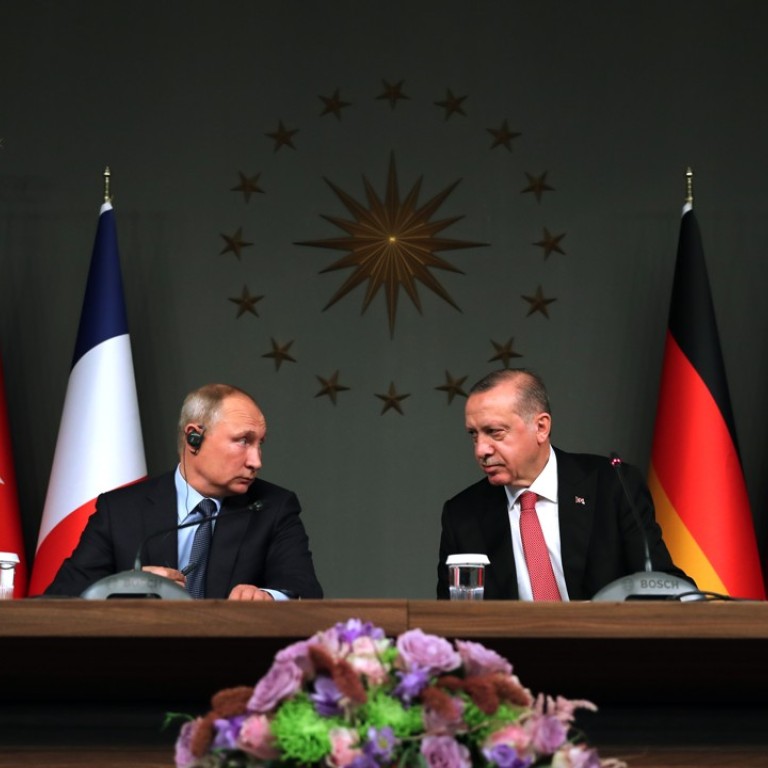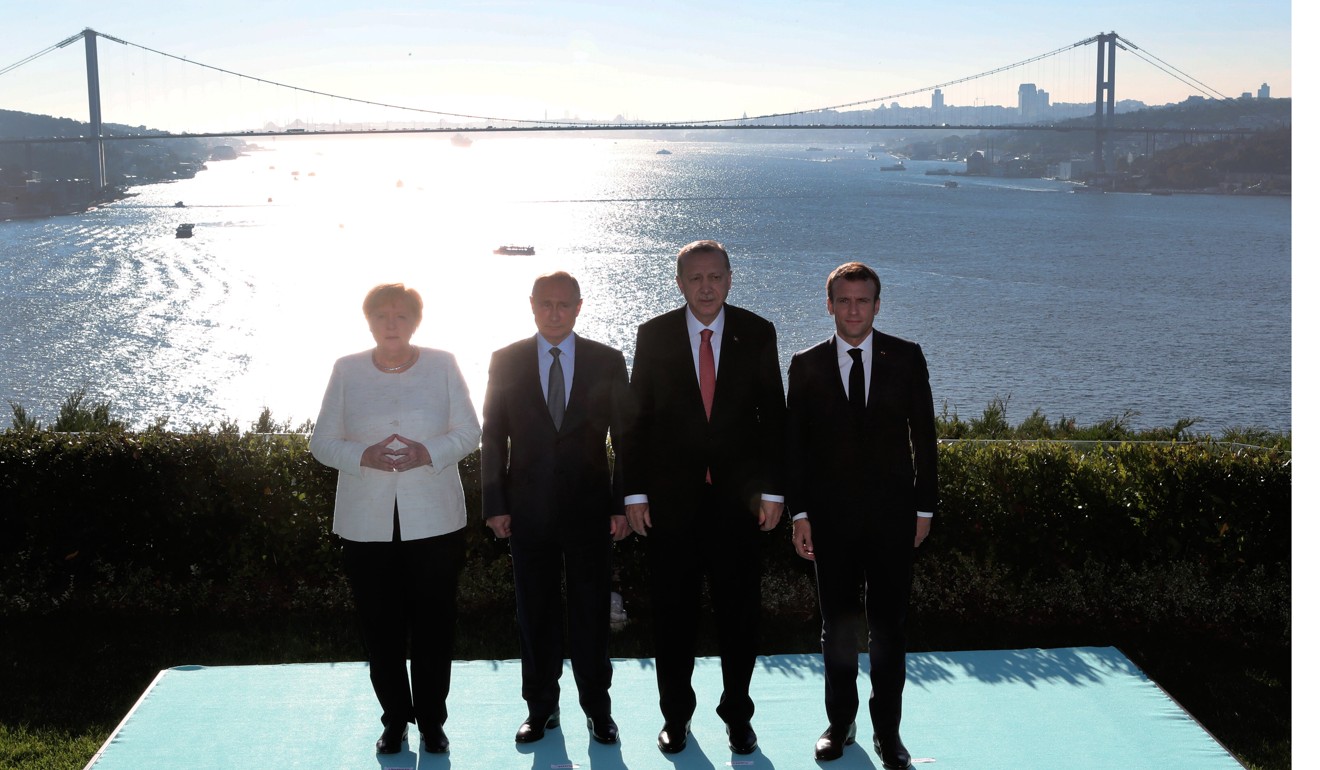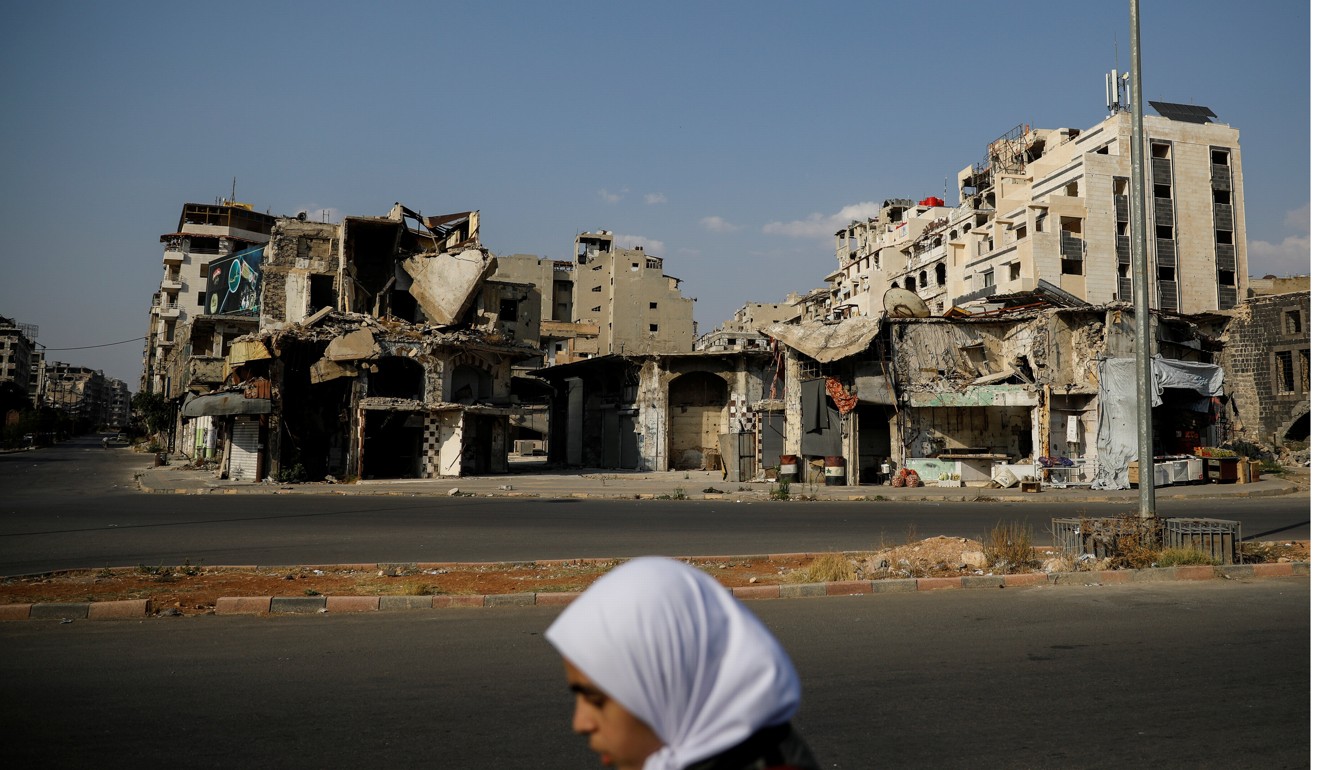
Russian and Nato leaders come up with few answers at their first Syria summit
- The first summit on Syria to bring together the leaders from Germany, Russia, Turkey and France
- The US was notably absent from the summit
The leaders of Russia and three Nato nations met Saturday for talks aimed at finding an end to Syria’s long war, whose possible final stages are now being shaped by Moscow and other outside powers.
But while each country stressed its commitment to ending the seven-year conflict, the summit appeared to produce few concrete results – underscoring the challenges of reaching a formula for peace formula amid rival factions, extremist groups and Western reluctance to re-engage with Syrian President Bashar al-Assad.
At a closing news conference, participants reiterated years-long calls for a political, not military, solution.
Calling the discussions “fruitful and sincere,” Turkish President Recep Tayyip Erdogan said all four participants – including Germany and France – agreed to support a United Nations-backed push to form a new constitutional committee for Syria by the end of the year.
“There will be no real, sustainable, credible return of the refugees if the political process is not initiated,” said French President Emmanuel Macron.
A final statement released by the leaders called for “an inclusive, Syrian-led and Syrian-owned political process” and the convening of a committee by the end of the year to work on constitutional reform as a prelude to UN-backed free and fair elections.

There were few indications that this was likely to materialise in the short-term.
Participants at an earlier peace conference in Russia’s Black Sea resort Sochi had agreed to form the 150-member committee to rewrite the Syrian constitution, with a third chosen by the government, a third by opposition groups and a third by the United Nations.
But the UN’s top diplomat on Syria, Staffan di Mistura, told reporters Friday that Syria’s foreign minister, Walid Muallem, had rejected the idea that the United Nations should play a role in forming part of the committee.
Islamic State kills dozens of US-backed fighters in eastern Syria, monitor says
“Minister Moalem indicated he would get back to me if new instructions came from his own leadership,” Mistura said.
As discussions wound down Saturday, Turkish state television showed Erdogan, Macron, Russian President Vladimir Putin and Germany Chancellor Angela Merkel strolling through the gardens of an Ottoman-era mansion toward, looking relaxed and ignoring the cameras.

Each leads a country to some extent buffeted by Syria’s war. Turkey has been hardest hit, taking in 3.5 million refugees while becoming a staging ground for terrorist attacks.
“Hundreds of our citizens and security personal have been wounded or even martyred,” Erdogan said Saturday.
Russia has intervened militarily to bolster the regime of Assad, which is also backed by Iran. Germany and France have taken in tens of thousands of Syrians.
But experts liked Saturday’s summit to a high level photo opportunity which mostly reflected Russia’s influence over the conflict’s end game.
Freed Japanese journalist recalls harrowing ordeal as hostage in Syria but many say it’s his own fault for getting kidnapped
“Nothing big should be expected of this weekend’s summit,” said Tobias Schneider, a research fellow at the Berlin-based Global Public Policy Institute.
“It’s mostly an expression of the very real leverage Russia, which has been lobbying for reconstruction assistance [without] political transition, holds over other outside actors invested in stability in Syria,” he added.
Russian air power has been crucial in allowing Assad’s forces to recapture all but one rebel-held area. Anti-Assad groups are now penned into the northern province of Idlib and surrounded by more than 2 million civilians.
Aid agencies and western governments have long warned that a final assault on the area could spell humanitarian disaster. In response, Russia and Turkey brokered a deal last month to dial down tensions and ensure that a final battle was unlikely in the short term.
Across Syria, factions such as Islamic State and al-Qaeda-linked militants also still have footholds and face air strikes from a US-led coalition.
In Syria, Islamic State killed at least 40 US-backed Syrian fighters and regained areas near the Iraqi border in fighting during a sandstorm, a war monitoring group Saturday.
Colonel Sean Ryan, spokesman for the US-led coalition, said they have no confirmation of exact figures “as both sides are taking casualties”.
He called it a “difficult fight”.
Additional reporting by Bloomberg

